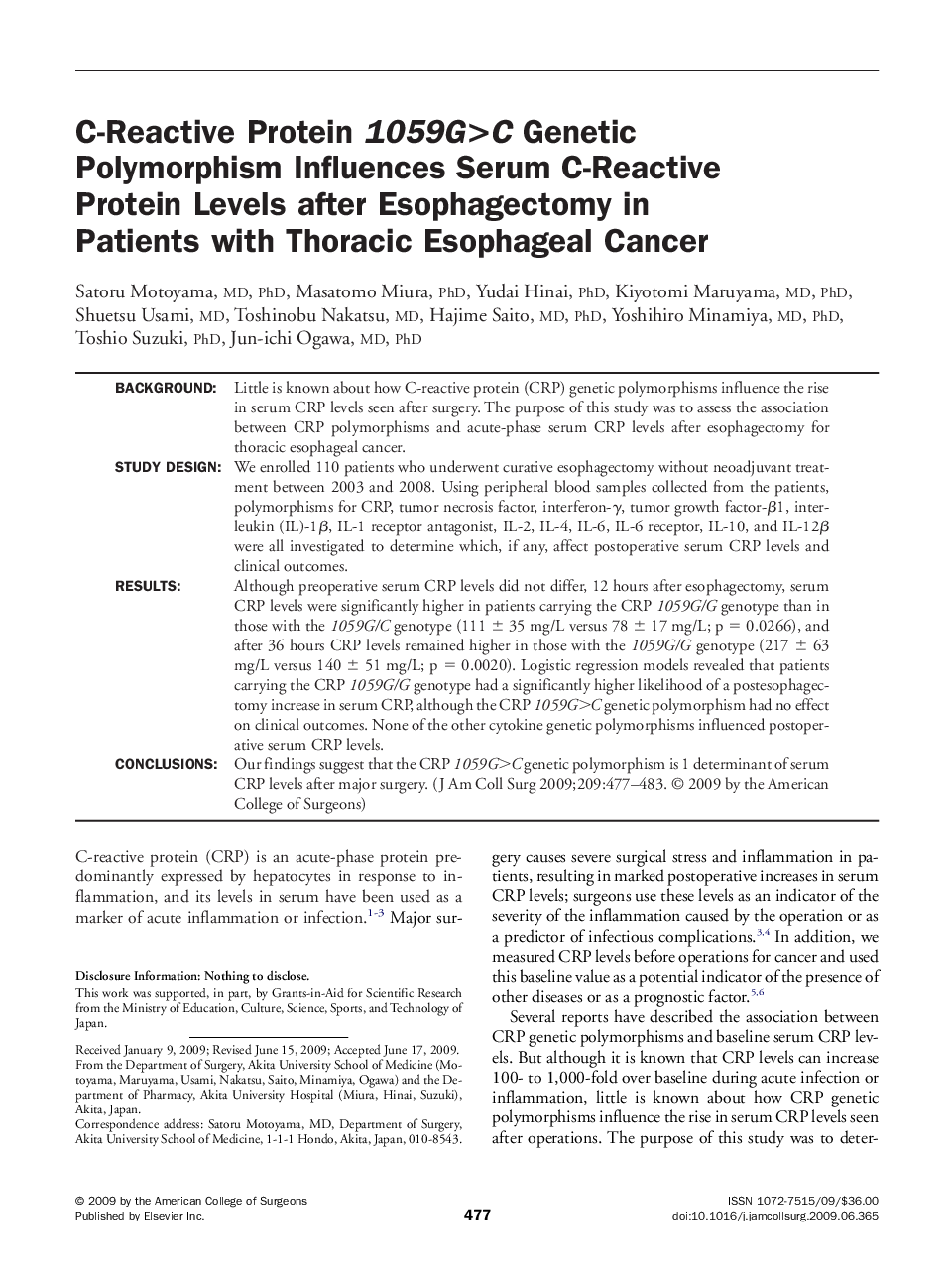| Article ID | Journal | Published Year | Pages | File Type |
|---|---|---|---|---|
| 4295003 | Journal of the American College of Surgeons | 2009 | 7 Pages |
BackgroundLittle is known about how C-reactive protein (CRP) genetic polymorphisms influence the rise in serum CRP levels seen after surgery. The purpose of this study was to assess the association between CRP polymorphisms and acute-phase serum CRP levels after esophagectomy for thoracic esophageal cancer.Study DesignWe enrolled 110 patients who underwent curative esophagectomy without neoadjuvant treatment between 2003 and 2008. Using peripheral blood samples collected from the patients, polymorphisms for CRP, tumor necrosis factor, interferon-γ, tumor growth factor-β1, interleukin (IL)-1β, IL-1 receptor antagonist, IL-2, IL-4, IL-6, IL-6 receptor, IL-10, and IL-12β were all investigated to determine which, if any, affect postoperative serum CRP levels and clinical outcomes.ResultsAlthough preoperative serum CRP levels did not differ, 12 hours after esophagectomy, serum CRP levels were significantly higher in patients carrying the CRP 1059G/G genotype than in those with the 1059G/C genotype (111 ± 35 mg/L versus 78 ± 17 mg/L; p = 0.0266), and after 36 hours CRP levels remained higher in those with the 1059G/G genotype (217 ± 63 mg/L versus 140 ± 51 mg/L; p = 0.0020). Logistic regression models revealed that patients carrying the CRP 1059G/G genotype had a significantly higher likelihood of a postesophagectomy increase in serum CRP, although the CRP 1059G>C genetic polymorphism had no effect on clinical outcomes. None of the other cytokine genetic polymorphisms influenced postoperative serum CRP levels.ConclusionsOur findings suggest that the CRP 1059G>C genetic polymorphism is 1 determinant of serum CRP levels after major surgery.
